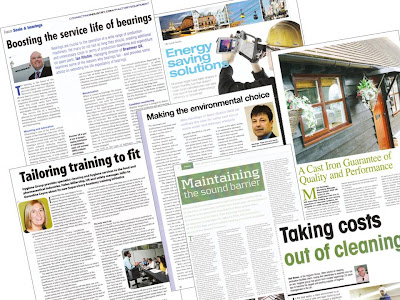
Evans brings up an interesting problem, one which we as a B2B specialist agency are undoubtedly going to face when forming social media strategies for our clients…
If not for sales, then why do it?
“…defining the "return" on a social media activity doesn't always have to be a direct sale. It's actually very rare…This is why it's a difficult to sell senior leadership on the idea that attempting to tie your direct return to a sale will prove that social media works…”
When trying to explain the value of social media, you can’t fall back on “because everyone else is doing it” – that’s the wrong reason to do anything, as many of you will remember from the delightful cliff and jump cliché many of our parents treated us to.
You can’t even try “because social media just isn’t going to go away”. No, it isn’t and businesses need to be aware of that – however it doesn’t mean you have to do everything, tackle every network, set up fifty profiles. Not every social medium is right for every business.
My personal go-to analogy is as follows. Imagine…
A young couple are enjoying a Staropramen (other premium lagers are available) and a dry white wine in their local. Unannounced and uninvited, a salesman draws up a chair. They tolerate him for the first few seconds as he’s told them an amazing and slightly inappropriate joke, but after that he becomes tiresome. They’re not interested in any of his wares and, moreover, they’re in the pub. They’re trying to relax and are not looking, not buying. Cue a friendly yet firm "sod off, mate."
Social media is that local boozer, café or park bench. That young couple are your customers – you are that salesman. If that’s not how you’d behave in the real world (and it isn't, hopefully), why do it online?

Now picture the same young couple, same bar. You’re the salesman, and you’ve been listening to their conversation for a good few minutes. You know what they’re drinking, you know she prefers salted while he likes a dry roasted, you know what they do, where they holiday, what they drive. You have an idea of their aspirations and hobbies. Now you can go in with your killer joke, and strike up a friendly conversation instead of giving them the sales pitch. When mutual trust has been built up, and this may take a fair few sessions in the Newt and Cucumber, you might mention a product of yours – with no hard sell and no obligation on their part. Even if they don’t buy, you remain friends.
What have you gained – what’s your “return”? A friend, a receptive ear, a good reputation. Reputation. The cornerstone of PR which has somehow been lost online. You might have made a sale, you might not, but you’re engaging with your audiences.
Putting this into a social media scenario, your “friends” might forward your details to someone they know who does want your product. They might post your killer joke and funny clip to Facebook, ensuring more hits and aiding SEO. They’re helping get your name out there.
“…those can all be measured as a "return." …increase the number of subscribers to your blog, get people to your website to take a quiz of some sort… get people to participate in a contest that raises brand awareness. All of these can be measured…”
 Following our RoSPA contract renewal there were even more celebrations at 72 Francis Road as our PR division won a hat-trick of accounts with 3M, one of the world’s most innovative and enterprising companies.
Following our RoSPA contract renewal there were even more celebrations at 72 Francis Road as our PR division won a hat-trick of accounts with 3M, one of the world’s most innovative and enterprising companies.




 Social media, as discussed in our earlier
Social media, as discussed in our earlier 














